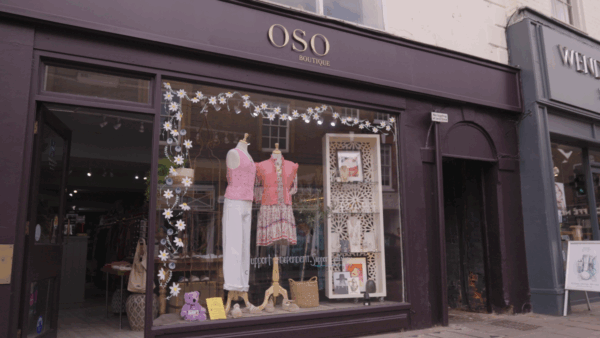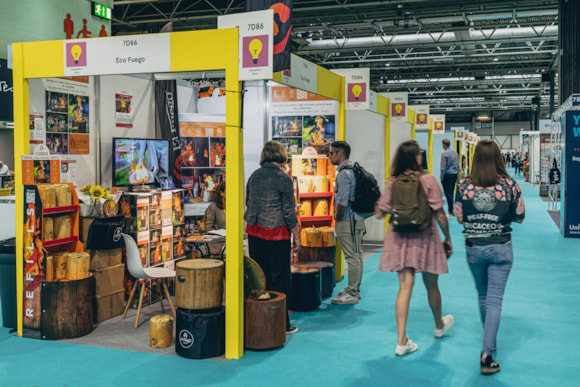According to data presented by Finbold, United Kingdom Black Friday 2021 sales are projected to grow 21.7% on a year-over-year basis from £2.78 billion to £3.39 billion. Despite the impact of the coronavirus pandemic, sales increased 10.1% between 2019 and 2020 from £2.53 billion to £2.78 billion.
Brits are expected to spend a total of £3.38 million per minute during the Black Friday shopping weekend. They are projected to spend £1.82 million per minute on offline shopping while the rest goes to online platforms and are being encouraged to shop local wherever possible to ensure a good proportion of this spend goes to valued independent retailers. The data and forecast on UK Black Friday spending is provided by the Vouchercodes.co.uk report.
Amanda Rutland, founder of Colchester-based Gorgeous Gourds was dreading Black Friday, describing it as: “Another awful gimmick that puts the kiss of death on small local businesses. Haven’t we learnt anything the past two years? We should buy local and reduce our carbon footprint.”
Michael Oszmann, founder of online marketplace, Buy Britain, was also dubious: “UK consumers have become increasingly sceptical about Black Friday”, he commented. “Are we really getting a bargain and saving money? Genuinely good deals are like needles in haystacks now. While price and value are still many people’s number one purchase drivers, there are now other considerations too: where has this product come from, what is it made from, does the company pay UK taxes?”
The projected rise in 2021 sales reflects the impact of the reopening economy that was heavily hit by the coronavirus pandemic, as during the last Black Friday, high market volatility and supply chain disruption impacted shopping. The economy is now showing signs of recovery with projections pointing to a solid growth that potentially spells good fortunes for businesses.
The projected sales increase will also reap from the online shopping growth that was directly influenced by the pandemic as customers shifted to eCommerce platforms due to the lockdown. Despite the growth of online shopping, a significant number of shoppers will likely prefer an in-person shopping experience which works well for consumers intending to try out products like clothes and view products before purchasing them.
Certain products are likely to be in high demand, including must-have toys which are topping Santa’s wish list, as well publicised supply chain constraints might convince consumers to shop for Christmas early on Black Friday weekend, which starts on November 26. The shopping event will be rounded off by Cyber Monday on November 29. Retailers wishing to capitalise should target shoppers with both in-store and online promotions, complimenting in-store discounting through Click and Collect and/or next-day delivery services.
The high spending per minute will be enabled by the ability of retailers to have formidable digital platforms. Online sites are assumed to be operating 24 hours a day, giving consumers more time to shop since online sales are spread over more hours of operation than offline sales.
Jamie Rackham, founder of Forest of Dean-based Facebook group, NOT ON AMAZON, rounded off the dark thoughts amongst indies about this infamous shopping fest: “Black Friday is a celebration of the careless: corporations that don’t care about their customers or the planet, consumers who don’t care about each other or how any of this affects the world and communities they live in, and billionaires who don’t care about a thing because they’re all off to Mars. When you buy from an independent producer there is a far greater likelihood that they will care about their products and their impact on the world. It’s an emotive, as opposed to sterile, relationship with the end consumer. Black Friday is a dystopia of empty, soulless deals.”

















